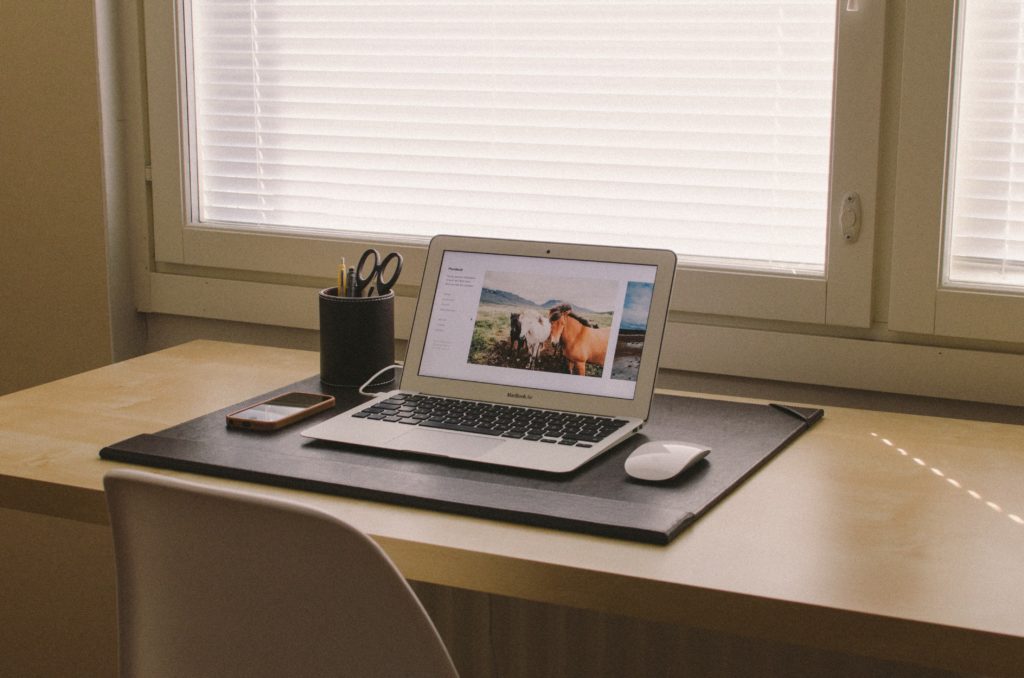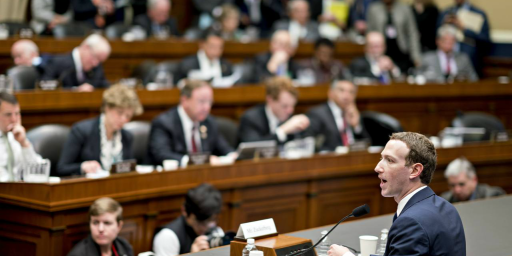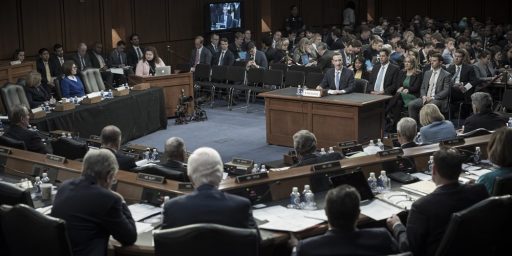Backlash of Non-Parents
Are those with kids getting over?

From the earliest days of the pandemic-induced lockdowns, the woes of parents trying to juggle family and work responsibilities have been in the spotlight. But mid-summer, the realization that schools weren’t going to re-open and restore some normalcy led to a collective yawp. Now, as companies struggle to provide some relief, non-parents are fighting back.
Daisuke Wakabayashi and Sheera Frenkel, writing for the New York Times (“Parents Got More Time Off. Then the Backlash Started.“):
When the coronavirus closed schools and child care centers and turned American parenthood into a multitasking nightmare, many tech companies rushed to help their employees. They used their comfortable profit margins to extend workers new benefits, including extra time off for parents to help them care for their children.
It wasn’t long before employees without children started to ask: What about us?
At a recent companywide meeting, Facebook employees repeatedly argued that work policies created in response to Covid-19 “have primarily benefited parents.” At Twitter, a fight erupted on an internal message board after a worker who didn’t have children at home accused another employee, who was taking a leave to care for a child, of not pulling his weight.
When Salesforce announced that it was offering parents six weeks of paid time off, most employees applauded. But one Salesforce manager, who is not permitted to talk publicly about internal matters and therefore asked not to be identified, said two childless employees, reflecting a sentiment voiced at several companies, complained that the policy seemed to put parents’ needs ahead of theirs.
The piece is, by necessity, incredibly anecdotal. And it focuses almost exclusively on tech companies like Salesforce, Facebook, and Twitter.
But the bottom line is that, no matter what companies do, they’re going to anger some segment of the workforce. Even seemingly equal policies—Twitter’s giving everyone unlimited vacation time and Facebook giving everyone the highest-tier performance bonus—are seen as unequal because they are seen as disproportionally benefitting those taking care of children.
It’s not a new story, of course. When I was a single Army officer, those in my boat bitched about the unofficial policy of sticking us with staff duty on holiday weekends so that our married colleagues could spend the time with their families. It was much worse for the junior enlisted troops, who were forced to live in the barracks and got stuck with most of the “Hey you” duties while their married counterparts got to live off base.
I’m seeing a bit of this resentment at my workplace now that we’ve returned to in-resident instruction after going remote in mid-March. We have a four-tier classification system: those infected with or who have come into direct contact with someone infected with COVID; those who are “high-risk” because of various comorbidities or share a household with a high-risk individual; healthy individuals impacted non-medically COVID—most obviously, those who need to juggle family responsibilities because schools and/or daycare centers are closed; and those completely able to return to work.
Even though we’ve just been back a few weeks—and just started teaching two weeks ago—the inequity of this is obvious. Those of us driving 45 minutes or more to the office are somewhat resentful of those who simply dial in for class or meetings remotely. That’s especially true in cases like yesterday, where we had an early all-hands meeting with half the cohort not showing up.
Of course, those who showed up were mostly childless or empty nesters. Or, like myself, have made other arrangements for the care of their children so they can do their job. Naturally, that sparks resentment that others are milking the system and getting over.
It is, of course, really hard to walk in another’s shoes. Most understand, in theory, how challenging it is to balance work and childcare. But married folks, and especially those who married young, have little appreciation for how hard it is to be single. Not only is there only the one income but there’s no one with whom to divide the necessary household tasks. And, in these COVID times, a lot of loneliness.
Again, I don’t think there’s a solution for any of this. The companies bending over backwards to give additional leave and flexibility to those facing unusual childcare burdens are doing the right thing. But, naturally, those who show up at the office every day are going to feel that they’re picking up the slack and not being rewarded for it.






Single versus married with children has always been an issue, even in non-Covid times. I know single women who’ve been expected to stay late at work and come in on weekends because, after all, they don’t have husbands and kids to tend. And since they’re salaried, they don’t get paid extra, either.
The pandemic has just exacerbated the situation, and I really don’t envy anyone who’s been thrust into the awful dilemma of having to choose between taking care of the children and working to get the money to house, feed, and clothe them.
Huh? Every one of those married people have been single for at least part of their life (I’ll give you the “married young” cohort but only to some extent).
As for how hard it is to be single, Head? Meet desk. The times when I was single, even as a divorced father of 2 sons who lived over an hour away from me and I picked them up every Wed and every other weekend and was paying child support, my life was much simpler and a lot easier. The choices I made were mine alone to make. If I went into debt it was because I decided I could afford it and did. If I wanted to go to Mexico for 2 weeks in January, I went. If I didn’t feel like sweeping the floor or doing the dishes, I didn’t and dealt with the mess.
When I had to take custody of my sons? Yeah, that all came to a screeching halt. Then when I finally moved in with my future wife, it changed my parental duties not one bit and in fact added a whole ‘nother layer of complications. FTR, I lost jobs because I thought my sons were more important than making my bosses happy.
When it comes to the Covid loneliness, as an introvert who was always more comfortable reading a book on the couch or walking alone in the woods, I can’t really identify with it but I do understand that some people are far more gregarious than I and that not having it is very hard for them.
Even still, this is just selfish “what about me” griping. Everybody should try being a single parent some time. As you well know James, it’s an unrelenting 24/7 job that doesn’t stop just because they are at school. I got very little sympathy for the whiners.
@OzarkHillbilly:
I was talking the other day (via Skype) with some friends; all of us agreed that liking to read and enjoying being alone has been a real lifesaver. I can’t imagine what people who dislike reading and can’t stand solitude do.
@CSK: Solitude has always been my refuge. My youngest is just like me in that but my eldest takes after his mother. He has a larger circle of friends that he continues to see at a hopefully proper social distance than I do.
This has been a problem a number of places where I have worked. In training the single people were always assigned to the major holidays. No discussion. It was just assumed that married people having time with family was more important than single people having time with family. In the present situation you have parents who had systems set up for care that were suddenly disrupted. There just isn’t a good or easy answer.
Steve
Some time ago, as a single father of 3, I spent about a year and a half dating a woman who had never had kids. Those different world views and life experiences caused more than a few “discussions.”
I don’t understand how giving everyone the same vacation time etc disproportionally benefits those taking care of children (or vice-versa). Was that a misprint?
@Northerner:
The perception, correct or not, that the parent who uses extensive amount of vacation to care for kids will have that a lesser negative effect on the individuals career than the single person who takes the same amount of time. For bonuses, for 3 months I put in 60 hour weeks to get this project done and my parent peers, not only worked only 40 weeks they took 10 days off.
Just goes to show once again, that there’s no way to slice the pie that won’t seem unfair to someone. No matter how hard they have to work at it.
I once worked for a company that wouldn’t hire smokers. Almost didn’t get the job because I was picking up about three cigarettes a day worth of secondary smoke where I was working. They grandfathered the existing smokers when they made the decision, so there were still a fair number of active smokers. In the Ohio winter they appealed for some relief from smoking in the parking lot. Management didn’t like having them hanging around the back entrance anyway. So the company set up a smoking room for them to take ciggy breaks. I looked in once out of curiosity. One moth eaten couch, a couple ash trays, and nothing else. Stank to high heaven. Of course after a few months some of the non-smokers started whining about how come they get a break room and we don’t.
There has to be some civic minded willingness to abide by the rules, even if they’re a little arbitrary, and not get upset over trivia.
That may be mostly true, but I think there’s also a legit point underlying at least some of the resentment. Namely, being married and/or a parent is a choice, and like all choices, it comes with costs as well as benefits. Why should I, as a married person (and hopefully soon a parent), get to shift some of those costs onto my unmarried / childless co-workers? I chose to structure my personal life in a way that eats up a larger share of my time and energy, but it’s on me to deal with that, not my coworkers. If I chose to live 90 minutes away from the office because the more rural community setting is worth the longer commute for me, it wouldn’t be fair to expect my colleagues who live closer to always handle more of the random weekend and evening work for my sake, would it? So why do we expect single people to do it for the sake of people who chose to be married / parents?
Personally, I think COVID, like any sudden, short term disruption, is a bit of an exception, and decent people with a greater amount of flexibility in their lifestyle should make allowances for those with less, but as James noted, this is a longstanding friction point even in normal times.
@Sleeping Dog:
Thanks, that never occurred to me. No idea if its true (and it might vary between jobs), but I can see some people thinking that.
I don’t begrudge my co-workers with family getting a but more benefits. I’m in the office more than anyone else on our team mainly because I’m single with no kids so don’t worry about bringing anything home with me. And with my co-workers spending more time at home I get less exposure from what *they* could bring to the office.
@R. Dave: Yes, marriage is a choice. So is being single. Insert “single” everywhere you said “married” and it sounds almost exactly the same. Funny how that works out. Look at it this way: My children will (dawg willing and the GOP drowns) someday be paying the social security all the single people are eventually going to get.
May you some day be cursed with children so that they may bless you with grandchildren for you to spoil rotten and teach them to do all the things your children did to you. 😉
@Sleeping Dog: The benefit of a union job: No bonuses, but time and a half up to 60, double time over that and Sundays and holidays.
This is hitting an interesting time for me. I’m single, but I am also my elderly mother’s sole caregiver. The level of care goes up and down. She just broke her wrist last week, so I’m at being her right hand for the next couple of months at the exact time that I’ve been forced back into face-to-face teaching.
@OzarkHillbilly:
What? Being single is the default social state of a person and not everyone is single by choice. Ditto having children. After all, it takes two and while you might wish to marry or have kids whomever you are seeing, they may not feel the same way. It really is a false equivalence to try and pretend the two are the same. After all, there’s no real reason to favor spouse over significant others other then personal bias that marriage is more socially valid then dating.
That being said, a lot of the resentment from childless /single folks is the *assumption*, not necessarily the division. Many folks such as myself were more then willingly to not work major holidays to let our coworkers with kids have the day but we wanted the choice. Ask me if I’m willing to work Xmas so someone can stay home with their 3yr old? Sure! Tell me I’m working Xmas because my social situation is lesser then theirs and they should automatically get the day because they spawned? Oh hell no, I’ll fight for the day even if I have zero plans.
It’s the judgement that’s the problem – it’s the assumption that unless you met certain social standards, you should expect to have to do more work. A lot of people will be accommodating if you ask because they may personally believe childless / single people should take the hit, but that is THEIR choice to make. Parents need to understand they may have to work major holidays or miss important landmarks in their kids lives if they can’t persuade coworkers to take their spot. Married folks may have to missed significant dates or spend holidays alone. If that feels unfair, imagine how it feels to be expected to always do that until you met an arbitrary social goal.
@R. Dave:
Covid isn’t a short term disruption — we’ve been doing this for 6 months now, and there’s no end in sight. And it’s a disruption that affects everyone at once.
Beyond that, companies are going to have to find a way to reward the people who are pulling the load right now (the people with fewer responsibilities who respond to stress by throwing themselves into work so they can control something in their lives).
If they don’t, people get resentful, and then they leave. And someone who responds to stress by working more is someone an employer should want to keep.
@Gustopher:
THIS. Reward or compensate those who are shouldering the burden so that coworkers with kids can take care of the next generation. Make assumptions that childless folks HAVE to do all the work and find out what happens when they don’t. What happens when the childless start saying no and refuse to pick up the slack? They gonna fire the people doing the greater share of the work and leave it for people who can’t handle what they’ve got going now? I’m sure parents would love extra work while watching their kids at home because their childless coworkers peaced out or are let go.
COVID isn’t going away anytime soon. Even if we get a vaccine and / or treatment today, it will be a least a year till we see anything close to normal. People need to understand this is how life is going to be for the foreseeable future. It really sucks having little kids underfoot all day but it’s gonna suck even worse if companies burn their bridges with employees who are helping keep the current tenuous compromises going.
@OzarkHillbilly:
You’re forgetting about the Incels, no woman wants to marry one of them or so they claim. Single by default.
And you are right about union jobs. Despite the warts, we need unions.
When I was single, I had no problems giving parents extra perks. Now I’m a parent and I feel a little guilty about it but not a lot. Someone has to raise the next generation. Someone has to provide the folks who are going to take care of everyone else when they get older. Really, this has less to do with parents vs. singles than with companies trying to squeeze ever more productivity out of their employees.
Sounds a bit like the whining from childless people complaining about paying real estate taxes (much of which goes to pay for the public school system): what’s in it for ME?!
Some people don’t understand the concept of “contributing to society”, sheesh.
@R. Dave:
By god, if I am doing the all nighter, then I get the boon. And I did a shit ton of all nighters.
No beef with folks with kids and spouses, but you went home and I stayed.
My boss went home, my bosses’ boss went home home, etc.
I stayed.
@grumpy realist:
Childless people contribute.
I resent your bitchiness.
We are in this together, fool!